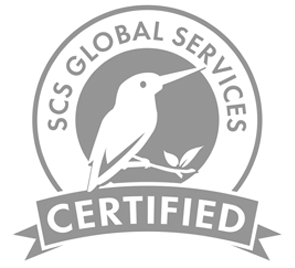
- Home /
- Services /
- Sustainable Fisheries and Seafood /
- ASC Feed Standard

Seafood Certification Team
What is the ASC Feed Standard?
Businesses that prioritize sustainability and responsible sourcing prefer the ASC Feed Standard to demonstrate their commitment to environmental stewardship and social responsibility. This certification is crucial for companies seeking to access markets with best-practice sustainability standards and to meet the growing consumer demand for responsibly produced seafood. Additionally, it provides a competitive edge by enhancing brand reputation and ensuring compliance with international regulations and guidelines in responsible aquaculture.
The certification process for the ASC Feed Standard involves a comprehensive audit of a feed mill's operations, assessing compliance with ASC's stringent standards for environmental sustainability and social responsibility. This includes evaluating sustainable sourcing of ingredients, minimizing environmental impacts, and ensuring ethical labor practices, culminating in certification for those that meet or exceed these criteria.
Why Choose SCS?
Achieving certification to the ASC Feed Standard through SCS Global Services offers a unique advantage. As the first accredited certifier for this standard, SCS brings unmatched expertise and experience. Our deep involvement in developing and piloting the ASC Feed Standard, combined with our comprehensive knowledge of major farmed species and feed mill production, ensures a thorough and robust audit process. Moreover, SCS' ability to bundle ASC Feed Standard audits with seafood safety and social/labour audits offer a streamlined, efficient approach for businesses seeking to demonstrate their commitment to both sustainability, product safety, and social compliance. This comprehensive service provides your customers with independent assurance that your feed products meet the highest environmental and social criteria. We also offer Science Based Targets services leveraging our experience and knowledge from having effectively guided numerous clients through the SBT development process to establish an appropriate approach.
- Pre-Assessment
- Process
- Documents
SCS Global Services offers a valuable pre-assessment service for producers looking for confirmation on their level of preparedness for a full ASC Feed Standard audit.
A pre-assessment is an optional but crucial step for businesses to understand their alignment with the ASC standard. It involves a thorough gap analysis of current operations against the ASC Feed Standard, followed by a detailed report highlighting areas that need improvement. This process not only prepares producers to be among the first to receive feed certification but also showcases their commitment to supplying ASC-certified products to their buyers.
The pre-assessment sets the stage for the formal full assessment required for certification. The cost of the full assessment is determined by several factors, including the scale of production, the number and nature of improvements identified during the pre-assessment, and the specifics of the auditing process. This structured approach ensures that producers are well-informed and prepared for the steps required to achieve and maintain certification to the ASC Feed Standard.
- Pre-assessment (Optional): Before the formal audit, a pre-assessment may be conducted to identify gaps between the mill's current practices and the ASC Feed Standard requirements. This helps in pinpointing areas needing improvement and determines what risks, if any, may limit your ability to successfully complete a rigorous and comprehensive assessment.
- Documentation Review: SCS submits a comprehensive request for records and documents. Auditors thoroughly review relevant documents and records, such as sourcing policies, environmental management plans, and labor practices, to ensure they align with the standards set by the ASC.
- On-site Inspection: Auditors visit the feed mill to observe operations and verify practices against the ASC’s Farm Assessment Methodology. This includes checking the sourcing of raw materials, environmental management systems, and worker conditions.
- Interviews and Stakeholder Engagement: Auditors conduct interviews with employees and, in some cases, external stakeholders like suppliers and local communities, to gather comprehensive insights into the mill’s practices.
- Report Generation: After the audit, a detailed report is generated outlining the findings and indicating whether the standard is met. This report will also highlight areas for improvement if the mill doesn't fully comply with the standard. A public draft of this report is posted for public comment.
- Certification Decision: If the audit results are positive and all criteria are met, the feed mill is granted ASC Feed Certification. If there are non-conformities, the mill is required to address these issues within a specified timeframe to achieve certification. SCS can also provide client marketing support.
- Ongoing Surveillance: Certification is valid for three years. Once certified, the mill will undergo annual surveillance audits to observe critical control points and ensure ongoing compliance with the ASC Feed Standard.
| Document Name | Document |
|---|---|
| ASC Feed Standard Brochure | English |
Seafood Certification Team
SCS Certified Clients
Learn more about the clients we certify and where to find products with this certification.



